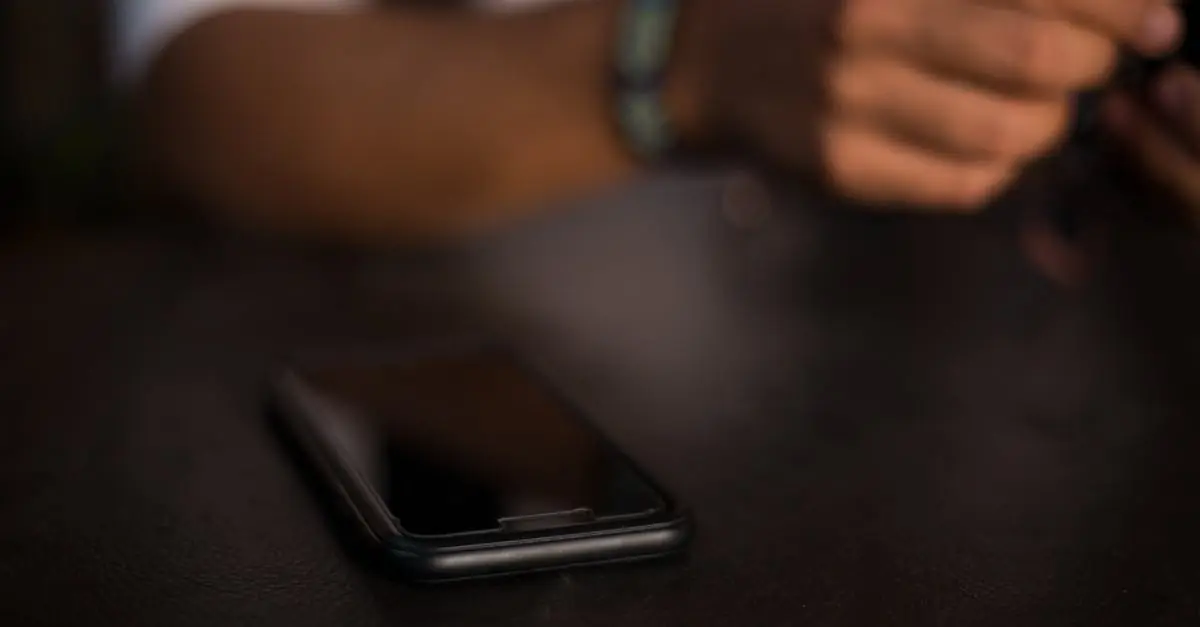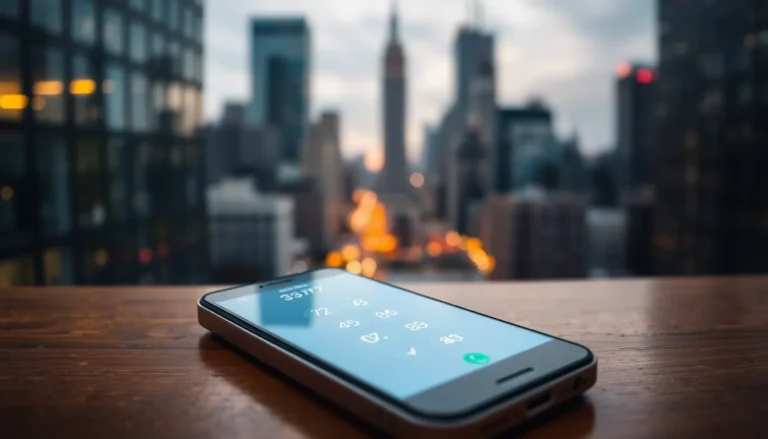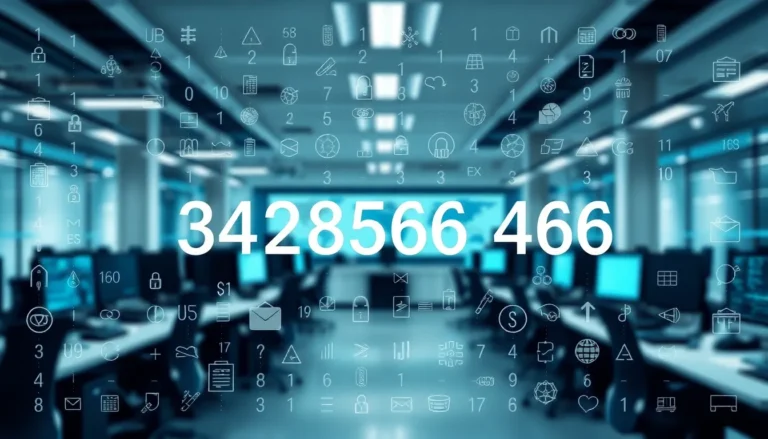Table of Contents
ToggleIn a world where privacy feels like a luxury, the thought of someone eavesdropping on your conversations can send shivers down anyone’s spine. Imagine your iPhone spilling your secrets like a chatty parrot—yikes! But how can you tell if your trusty device has been turned into a spy’s best friend?
Signs Your iPhone May Be Tapped
Identifying signs of a tapped iPhone can help in safeguarding personal privacy. Several indicators may suggest unauthorized access to a device.
Unusual Battery Drain
Unusual battery drain often raises concerns. If an iPhone discharges quicker than normal, it may indicate malicious activity. Plus, running background applications can consume more power. Frequent app crashes can also signal potential tapping. Monitoring battery usage statistics provides insight into which apps are draining power. If suspicious activity appears in this list, it warrants further investigation.
Unexpected Data Usage
Unexpected data usage can hint at unauthorized access. Users should regularly check data usage in their settings. If there’s a noticeable spike without a change in usage habits, it could suggest tapping. Background data usage from unfamiliar apps often raises red flags. Reporting excessive data consumption to the cellular provider can help pinpoint issues. Addressing these concerns promptly can safeguard sensitive information.
Strange Sounds During Calls
Strange sounds during calls can alert users to potential tapping. Echoes, clicks, or static often signal interference, hinting at eavesdropping. Additionally, overlapping voices or sudden drops during conversations may indicate unauthorized monitoring. Users should trust their instincts when calls seem off. Changing network settings or resetting the device may help. If strange sounds persist, consider seeking professional advice for further investigation.
How to Check Your iPhone for Tapping
Checking an iPhone for signs of tapping involves monitoring specific indicators and settings. Several straightforward methods can help identify unauthorized access.
Review Your Installed Apps
Start by examining the apps on your iPhone. Look for any unfamiliar apps that were not installed by you. Some malicious apps may hide under generic names or appear similar to legitimate ones. It’s important to delete any unknown apps immediately. Regularly check the App Store for updates, as updates can fix security vulnerabilities. Ensure all apps are from trusted developers and download directly from the App Store.
Monitor Call and Text Activity
Keeping an eye on call and text activity is crucial. Users should watch for unexpected calls or messages that they didn’t make or receive. Listening for strange noises during calls can also serve as a warning sign. If calls drop frequently without reason, this might suggest interference. Analyze the phone bill for any unauthorized charges that don’t match known contacts or services. Taking these steps aids in identifying possible eavesdropping.
Check for Unfamiliar Settings
Vigilantly inspect your iPhone’s settings to look for anything out of the ordinary. Navigate to the Privacy settings and review location services to confirm that only necessary apps have access. Additionally, examine the device’s VPN and profiles for unknown configurations that could allow remote monitoring. Resetting settings can eliminate any unauthorized changes, restoring your iPhone to its original conditions. Regularly checking these elements ensures better security and privacy.
Preventing Your iPhone from Being Tapped
Implementing proactive measures significantly reduces the risk of having your iPhone tapped. These strategies enhance security and protect personal privacy.
Use Strong Passwords
Strong passwords protect devices from unauthorized access. Users should aim for passwords that combine letters, numbers, and symbols, with a minimum length of 12 characters. Avoid using easily guessable information, such as birthdays or common words. Enable two-factor authentication whenever possible, which adds an extra layer of security. Regularly updating passwords every few months enhances protection against potential breaches.
Keep Your Software Updated
Keeping the iPhone’s software updated is crucial for security. Apple regularly releases updates to fix vulnerabilities and enhance privacy features. Users must enable automatic updates to ensure that they always run the latest version of iOS. Checking for manual updates in settings can also help, especially when significant updates are announced. Adopting each update promptly helps prevent exploitation by malicious actors.
Avoid Public Wi-Fi Networks
Using public Wi-Fi networks increases the risk of unauthorized access. Hackers often exploit these connections to intercept communications and gather personal information. It’s wise to connect to secured and password-protected networks rather than public ones. If accessing sensitive information is necessary while on the go, utilizing a virtual private network (VPN) encrypts data and adds a layer of security even on public networks. This approach keeps personal information safe from potential snoopers.
What to Do If You Suspect Tapping
Taking action when suspecting your iPhone is tapped is essential for safeguarding privacy. Here are practical steps to consider.
Contact Your Carrier
Reaching out to your carrier can provide vital information regarding potential tapping. Carriers often have tools to detect unauthorized access and can check for unusual activity on your account. Requesting assistance enables a thorough investigation of call records and data usage. If any unfamiliar devices appear, your carrier may help secure your account further. Maintaining an open line of communication with your carrier fosters better security and peace of mind.
Reset Your iPhone
Performing a reset on your iPhone can eliminate unwanted software and restore its original settings. The process involves erasing all content and settings, thus removing potential malware or unauthorized apps. Backing up data is crucial before undertaking this step to prevent loss of important information. After the reset, reinstall only trusted applications from the App Store. A fresh start significantly enhances security against future threats.
Seek Professional Help
Consulting a professional offers further assurance if tapping concerns persist. Security experts can conduct advanced diagnostics on your iPhone to detect potential compromises. They utilize specialized software to analyze the device and uncover hidden vulnerabilities. Engaging a skilled technician ensures that all angles are explored in maintaining your phone’s integrity. Prompt professional intervention helps restore confidence in personal privacy.
Staying vigilant about the security of an iPhone is essential in today’s digital landscape. By recognizing the signs of a tapped device and implementing proactive measures, users can significantly enhance their privacy. Regularly monitoring phone activity and settings can help identify potential threats early on. If there’s any suspicion of unauthorized access, taking immediate action is crucial. Whether contacting the carrier or seeking professional assistance, addressing concerns promptly can help restore peace of mind. Ultimately, safeguarding personal information requires a combination of awareness and proactive security practices.








